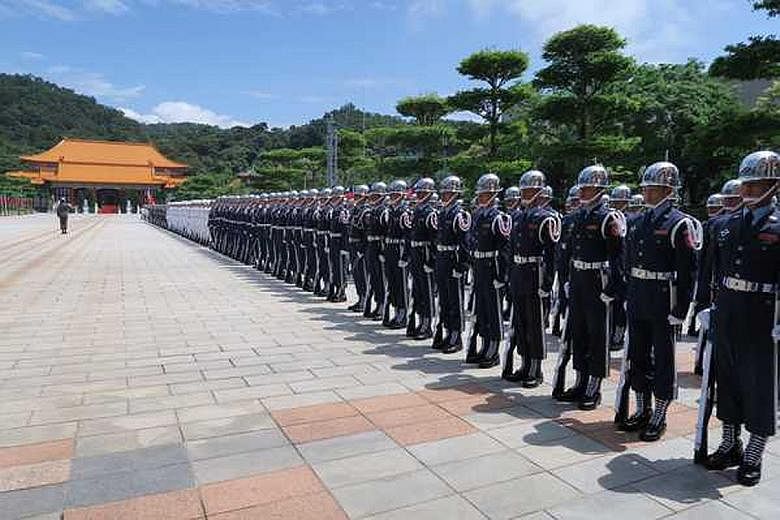As she began her first week in office, Taiwan President Tsai Ing-wen was eager to show that her administration will not be more of the same.
The 59-year-old leader, who was sworn in last Friday, did not follow her predecessor Ma Ying-jeou who had paid homage to the Yellow Emperor, the mythical ancestor of the Han Chinese.
Instead, Ms Tsai led other leaders, including Vice-President Chen Chien-jen and Premier Lin Chuan, to pay tribute to the island's war dead. She laid a wreath in a simple five-minute ceremony at the National Revolutionary Martyrs' Shrine in Taipei.
Ms Tsai, from the Democratic Progressive Party (DPP), is Taiwan's fourth directly elected president and its first woman president.
Mr Ma was the first president to commemorate the Yellow Emperor, a move that was previously criticised by politicians for being "China-centric".
Responding to media queries, a spokesman for the Presidential Office said yesterday: "We are now in the democratic era; we do not want to follow the past. The ceremony is simple, solemn. Our intentions are the same."
Ms Tsai's closely scrutinised moves sought to set the tone of her administration which wants to change the way Taiwan is run.
Ms Tsai devoted the bulk of her 30-minute inauguration speech to reforms to jump-start the flagging economy, retool the national pension scheme and judicial system.
Reactions to Ms Tsai's administration's to-do list, aimed at improving the livelihood of Taiwanese people, have largely been positive. Yesterday, the Taiwan stock market saw its biggest gains in eight months, rising 2.6 per cent.
Political analyst Yen Chen-shen thinks that Ms Tsai has addressed most of the issues plaguing Taiwan today, and highlighted concrete measures in her push for transitional justice.
To do so, Ms Tsai said she will set up a Truth and Reconciliation Commission in the Presidential Office to prevent incidents like the White Terror era of suppression of political dissidents from 1947 to 1987.
"Chen Shui-bian (the first DPP president) talked about it but didn't do much; the Ma administration did not even broach the topic. But Ms Tsai is personally overseeing this," said the research fellow at the Institute of International Relations, National Chengchi University.
Finance analyst Joyce Wen, who attended Ms Tsai's inauguration, said: "Since she has asked for our patience and more time to change things, we should be able do that and then hold her to her words when the time comes ."
Yesterday, the government announced that it has dropped a lawsuit against 126 protesters who stormed the building of the Cabinet in 2014 to protest against a trade service pact signed with China.
Premier Lin, explaining the decision, said the movement had its "legitimacy". "The Sunflower Movement's demand has become a social consensus. Parliament is legislating the Oversight Bill on cross-strait agreements based on such a demand, which highlights the movement's legitimacy and social contribution."

